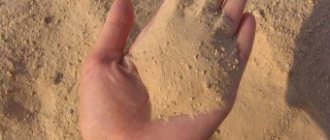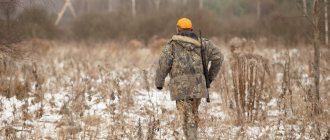ST 256 of the Criminal Code of the Russian Federation.
1. Illegal extraction (catch) of aquatic biological resources (with the exception of aquatic biological resources of the continental shelf of the Russian Federation and the exclusive economic zone of the Russian Federation), if this act is committed:
a) causing major damage;
b) using a self-propelled floating vehicle or explosives and chemicals, electric current or other prohibited weapons and methods of mass destruction of aquatic biological resources;
c) in spawning areas or on migration routes to them;
d) in specially protected natural areas or in a zone of environmental disaster or in a zone of environmental emergency, -
shall be punishable by a fine in the amount of three hundred thousand to five hundred thousand rubles, or in the amount of the wages or other income of the convicted person for a period of two to three years, or by compulsory labor for a term of up to four hundred eighty hours, or by corrective labor for a term of up to two years, or by imprisonment. for the same period.
2. Illegal hunting of seals, sea beavers or other marine mammals on the high seas or in prohibited areas -
shall be punishable by a fine in the amount of three hundred thousand to five hundred thousand rubles, or in the amount of the wages or other income of the convicted person for a period of two to three years, or by compulsory labor for a term of up to four hundred eighty hours, or by corrective labor for a term of up to two years, or by imprisonment. for the same period.
3. Acts provided for in parts one or two of this article, committed by a person using his official position, or by a group of persons by prior conspiracy or by an organized group, or which caused especially large-scale damage, -
shall be punishable by a fine in the amount of five hundred thousand to one million rubles or in the amount of the wages or other income of the convicted person for a period of three to five years, or by imprisonment for a term of two to five years with deprivation of the right to hold certain positions or engage in certain activities for a term of up to three years or without it.
Note : In this article, major damage is recognized as damage caused to aquatic biological resources, calculated according to the rates approved by the Government of the Russian Federation, exceeding one hundred thousand rubles, especially large - two hundred and fifty thousand rubles.
Commentary to Art. 256 Criminal Code
1. The subject of the crime is aquatic biological resources - fish, aquatic invertebrates, aquatic mammals, algae, other aquatic animals and plants in a state of natural freedom.
The actions of persons guilty of illegal fishing, harvesting of aquatic animals raised by various enterprises and organizations in specially constructed or adapted reservoirs, or taking possession of fish and aquatic animals caught by these organizations are subject to qualification as theft of someone else's property.
Waterfowl fur-bearing animals and waterfowl do not fall under the concept of other aquatic animals; their illegal hunting is qualified under Art. 258 of the Criminal Code.
2. The objective side is expressed in the illegal extraction (catch) of aquatic biological resources. Extraction (catch) means the removal of the specified biological resources from their habitat. An illegal nature may be indicated by the lack of permission to extract aquatic biological resources, the commission of these actions at prohibited times, in unauthorized places or using unauthorized tools, techniques and methods.
3. The crime provided for in paragraph “a” of Part 1 of Art. 256 of the Criminal Code, ends from the moment of causing major damage, established in accordance with the note to the article.
In other cases, the crime is completed from the moment the extraction begins, regardless of whether aquatic biological resources were extracted.
4. Some issues of criminal liability for committing this crime are disclosed in the Resolution of the Plenum of the Supreme Court of the Russian Federation dated November 23, 2010 N 26 “On some issues of the application by courts of legislation on criminal liability in the field of fishing and conservation of aquatic biological resources (Articles 253, 256 of the Criminal Code RF)".
Illegal extraction (catch) of aquatic biological resources. Illegal hunting
Illegal extraction (catch) of aquatic biological resources (Article 256 of the Criminal Code of the Russian Federation)
The generic object is public safety.
Species object - environmental safety.
The immediate object is the environmental safety of the wildlife protection sector.
The subject of this crime is aquatic biological resources.
The objective side is expressed in the act - the illegal extraction (fishing) of aquatic biological resources.
The objective side of this crime provides for the commission of this crime in the following variants:
a) is expressed in three mandatory characteristics: the act is the illegal extraction (fishing) of aquatic biological resources; consequences in the form of causing major damage and the causal relationship between the act and the consequences that occurred.
The composition is material by design and is considered complete from the moment the consequences occur.
When the courts decide whether the damage caused by the illegal harvest of aquatic animals and plants is large, it is necessary to take into account the quantity taken, damaged or destroyed, the prevalence of animals, their classification into special categories, for example, rare and endangered species, environmental value, significance for a specific habitat, as well as other circumstances of the crime. In the event of major damage caused by illegal harvesting of aquatic animals and plants, it is necessary to establish a causal relationship between the actions of the perpetrator and their consequences. At the same time, the courts must, in each specific case, when qualifying the offense, proceed not only from the cost of what was extracted and quantitative criteria, but also take into account the environmental damage caused, i.e. damage generally caused to the animal and plant world. Such harm should, in particular, include damage caused by the destruction of spawning sites, the death of a large number of fry during illegal aquatic fishing, catching or destruction of animals and plants listed in the Red Book of the Russian Federation (clause 16 of the Resolution);
b) is expressed in an act - illegal extraction (catch) of aquatic biological resources using a self-propelled floating vehicle or explosives and chemicals, electric current or other methods of mass extermination of the specified aquatic animals and plants.
The composition is formal in design and is considered completed from the moment the act is committed;
c) is expressed in an act - the illegal extraction (catch) of aquatic biological resources in spawning areas or on migration routes to them.
The composition is formal in design and is considered completed from the moment the act is committed;
d) is expressed in an act - the illegal extraction (fishing) of aquatic biological resources on the territory of a reserve, wildlife sanctuary or in an environmental disaster zone or in an environmental emergency zone.
The composition is formal in design and is considered completed from the moment the act is committed;
Formal charges are considered completed from the moment begins , regardless of whether aquatic animals and plants, fish or other animals were actually caught (clause 17 of the Resolution).
If difficulties arise in distinguishing between a criminal act and an administrative offense, special attention should be paid to clarifying all the circumstances characterizing the composition of an environmental offense, the consequences of the unlawful act, the amount of harm caused and the damage caused. In particular, the distinction between criminally punishable harvesting of aquatic animals and plants (Article 256 of the Criminal Code of the Russian Federation) and a similar administrative offense must be carried out based on the presence of major damage, the use of a self-propelled floating vehicle or explosives and chemicals, electric current or other methods of mass extermination, and also depending on the circumstances of the place where the act was committed (spawning sites or migration routes to them, the territory of a nature reserve, wildlife sanctuary, zone of environmental disaster or zone of environmental emergency) (clause 13 of the Resolution).
The actions of persons guilty of illegal fishing, harvesting of aquatic animals raised by various enterprises and organizations in specially constructed or adapted reservoirs, or taking possession of fish, aquatic animals caught by these organizations, or wild animals and birds located in nurseries, enclosures, are subject to qualification as theft of someone else's property (clause 48 of the Resolution).
The subjective side is characterized by an intentional form of guilt and is expressed in a direct or indirect form of intent (in material composition); in formal compositions it is characterized by a deliberate form of guilt and is expressed in the direct form of intent.
Subject is a natural, sane person over 16 years of age.
Qualified type , Part 2, Art. 256 of the Criminal Code of the Russian Federation provides for criminal liability for the illegal hunting of seals, sea beavers or other marine mammals on the high seas or in prohibited areas.
The subject of this crime are seals, sea beavers, and other marine mammals.
Other marine mammals include walruses, seals, whales, etc.
The objective side is expressed in the act in the form of active actions - in the illegal hunting of marine mammals on the high seas or in Prohibited Zones.
The composition is formal by design and is considered completed from the moment the act is committed.
The subjective side is characterized by a deliberate form of guilt and is expressed in the direct form of intent.
Subject is a natural, sane person over 16 years of age.
Particularly qualified type , Part 3, Art. 256 of the Criminal Code of the Russian Federation provides for criminal liability for the acts provided for (parts 1, 2), committed: by a person using his official position or by a group of persons by prior conspiracy or by an organized group.
Illegal hunting (Article 258 of the Criminal Code of the Russian Federation)
The generic object is public safety.
Species object - environmental safety.
The immediate object is the environmental safety of the wildlife protection sector. Subject: animals and birds.
The objective side is expressed in the act in the form of active actions - in illegal hunting.
The objective side of this crime provides for the commission of this crime in the following variants:
a) is expressed in three mandatory characteristics: an act in the form of active actions - in illegal hunting; consequences in the form of major damage and a causal relationship between the act and the resulting consequences. The composition is material by design and is considered complete from the moment the consequences occur.
When the courts decide whether the damage caused by illegal hunting is large, it is necessary to take into account the quantity hunted, damaged or destroyed, the prevalence of animals, their classification into special categories, for example, rare and endangered species, environmental value, significance for a specific habitats, hunting grounds, as well as other circumstances of the crime. In the event of major damage caused by illegal hunting, it is necessary to establish a causal relationship between the actions of the perpetrator and their consequences. In each specific case, when qualifying what has been done, one should not only proceed from the cost of what was extracted and quantitative criteria, but also take into account the environmental damage caused, i.e. damage generally caused to the animal and plant world. Such harm should, in particular, include damage caused by the shooting of bison, elk, and deer during illegal hunting, the destruction of animals and plants listed in the Red Book of the Russian Federation (clause 6 of the Resolution);
b) is expressed in an act - illegal hunting with the use of a mechanical vehicle or aircraft, explosives, gases or other methods of mass destruction of birds and animals. The composition is formal in design and is considered completed from the moment the act is committed;
c) is expressed in an act - illegal hunting of birds and animals, the hunting of which is completely prohibited. The composition is formal in design and is considered completed from the moment the act is committed;
d) is expressed in an act - illegal hunting in the territory of a reserve, wildlife sanctuary or in an environmental disaster zone or in an environmental emergency zone. The composition by design and is considered completed from the moment the act is committed.
Formal investigations are considered completed from the moment the hunting, tracking, pursuit, and catching begin, regardless of whether the animals were actually killed (clause 17 of the Resolution).
Illegal hunting includes hunting carried out in violation of current legislation (for example, without special permission, in prohibited places, during prohibited periods, etc.).
The distinction between illegal hunting, punishable criminally (Article 258 of the Criminal Code of the Russian Federation), and an administrative offense - violation of hunting rules should be made according to the qualifying criteria of the crime; causing major damage, the use of a mechanical vehicle or aircraft , explosives, gases and other methods of mass destruction of birds and animals, as well as if the act was committed in relation to birds and animals, the hunting of which is completely prohibited, or on the territory of a nature reserve, wildlife sanctuary, or in an environmental disaster zone or in an environmental emergency zone (clause 18 of the Resolution).
The subjective side is characterized by an intentional form of guilt and is expressed in the direct or indirect form of intent in the material composition; in formal compositions it is characterized by an intentional form of guilt and is expressed in the direct form of intent.
Subject is a natural, sane person over 16 years of age.
Qualified type , Part 2, Art. 258 of the Criminal Code of the Russian Federation provides for criminal liability for illegal hunting committed by a person using his official position or by a group of persons by prior conspiracy or by an organized group .
Illegal extraction (catch) of aquatic biological resources (Article 256 of the Criminal Code of the Russian Federation)
The generic object is public safety.
Species object - environmental safety.
The immediate object is the environmental safety of the wildlife protection sector.
The subject of this crime is aquatic biological resources.
The objective side is expressed in the act - the illegal extraction (fishing) of aquatic biological resources.
The objective side of this crime provides for the commission of this crime in the following variants:
a) is expressed in three mandatory characteristics: the act is the illegal extraction (fishing) of aquatic biological resources; consequences in the form of causing major damage and the causal relationship between the act and the consequences that occurred.
The composition is material by design and is considered complete from the moment the consequences occur.
When the courts decide whether the damage caused by the illegal harvest of aquatic animals and plants is large, it is necessary to take into account the quantity taken, damaged or destroyed, the prevalence of animals, their classification into special categories, for example, rare and endangered species, environmental value, significance for a specific habitat, as well as other circumstances of the crime. In the event of major damage caused by illegal harvesting of aquatic animals and plants, it is necessary to establish a causal relationship between the actions of the perpetrator and their consequences. At the same time, the courts must, in each specific case, when qualifying the offense, proceed not only from the cost of what was extracted and quantitative criteria, but also take into account the environmental damage caused, i.e. damage generally caused to the animal and plant world. Such harm should, in particular, include damage caused by the destruction of spawning sites, the death of a large number of fry during illegal aquatic fishing, catching or destruction of animals and plants listed in the Red Book of the Russian Federation (clause 16 of the Resolution);
b) is expressed in an act - illegal extraction (catch) of aquatic biological resources using a self-propelled floating vehicle or explosives and chemicals, electric current or other methods of mass extermination of the specified aquatic animals and plants.
The composition is formal in design and is considered completed from the moment the act is committed;
c) is expressed in an act - the illegal extraction (catch) of aquatic biological resources in spawning areas or on migration routes to them.
The composition is formal in design and is considered completed from the moment the act is committed;
d) is expressed in an act - the illegal extraction (fishing) of aquatic biological resources on the territory of a reserve, wildlife sanctuary or in an environmental disaster zone or in an environmental emergency zone.
The composition is formal in design and is considered completed from the moment the act is committed;
Formal charges are considered completed from the moment begins , regardless of whether aquatic animals and plants, fish or other animals were actually caught (clause 17 of the Resolution).
If difficulties arise in distinguishing between a criminal act and an administrative offense, special attention should be paid to clarifying all the circumstances characterizing the composition of an environmental offense, the consequences of the unlawful act, the amount of harm caused and the damage caused. In particular, the distinction between criminally punishable harvesting of aquatic animals and plants (Article 256 of the Criminal Code of the Russian Federation) and a similar administrative offense must be carried out based on the presence of major damage, the use of a self-propelled floating vehicle or explosives and chemicals, electric current or other methods of mass extermination, and also depending on the circumstances of the place where the act was committed (spawning sites or migration routes to them, the territory of a nature reserve, wildlife sanctuary, zone of environmental disaster or zone of environmental emergency) (clause 13 of the Resolution).
The actions of persons guilty of illegal fishing, harvesting of aquatic animals raised by various enterprises and organizations in specially constructed or adapted reservoirs, or taking possession of fish, aquatic animals caught by these organizations, or wild animals and birds located in nurseries, enclosures, are subject to qualification as theft of someone else's property (clause 48 of the Resolution).
The subjective side is characterized by an intentional form of guilt and is expressed in a direct or indirect form of intent (in material composition); in formal compositions it is characterized by a deliberate form of guilt and is expressed in the direct form of intent.
Subject is a natural, sane person over 16 years of age.
Qualified type , Part 2, Art. 256 of the Criminal Code of the Russian Federation provides for criminal liability for the illegal hunting of seals, sea beavers or other marine mammals on the high seas or in prohibited areas.
The subject of this crime are seals, sea beavers, and other marine mammals.
Other marine mammals include walruses, seals, whales, etc.
The objective side is expressed in the act in the form of active actions - in the illegal hunting of marine mammals on the high seas or in Prohibited Zones.
The composition is formal by design and is considered completed from the moment the act is committed.
The subjective side is characterized by a deliberate form of guilt and is expressed in the direct form of intent.
Subject is a natural, sane person over 16 years of age.
Particularly qualified type , Part 3, Art. 256 of the Criminal Code of the Russian Federation provides for criminal liability for the acts provided for (parts 1, 2), committed: by a person using his official position or by a group of persons by prior conspiracy or by an organized group.
Illegal hunting (Article 258 of the Criminal Code of the Russian Federation)
The generic object is public safety.
Species object - environmental safety.
The immediate object is the environmental safety of the wildlife protection sector. Subject: animals and birds.
The objective side is expressed in the act in the form of active actions - in illegal hunting.
The objective side of this crime provides for the commission of this crime in the following variants:
a) is expressed in three mandatory characteristics: an act in the form of active actions - in illegal hunting; consequences in the form of major damage and a causal relationship between the act and the resulting consequences. The composition is material by design and is considered complete from the moment the consequences occur.
When the courts decide whether the damage caused by illegal hunting is large, it is necessary to take into account the quantity hunted, damaged or destroyed, the prevalence of animals, their classification into special categories, for example, rare and endangered species, environmental value, significance for a specific habitats, hunting grounds, as well as other circumstances of the crime. In the event of major damage caused by illegal hunting, it is necessary to establish a causal relationship between the actions of the perpetrator and their consequences. In each specific case, when qualifying what has been done, one should not only proceed from the cost of what was extracted and quantitative criteria, but also take into account the environmental damage caused, i.e. damage generally caused to the animal and plant world. Such harm should, in particular, include damage caused by the shooting of bison, elk, and deer during illegal hunting, the destruction of animals and plants listed in the Red Book of the Russian Federation (clause 6 of the Resolution);
b) is expressed in an act - illegal hunting with the use of a mechanical vehicle or aircraft, explosives, gases or other methods of mass destruction of birds and animals. The composition is formal in design and is considered completed from the moment the act is committed;
c) is expressed in an act - illegal hunting of birds and animals, the hunting of which is completely prohibited. The composition is formal in design and is considered completed from the moment the act is committed;
d) is expressed in an act - illegal hunting in the territory of a reserve, wildlife sanctuary or in an environmental disaster zone or in an environmental emergency zone. The composition by design and is considered completed from the moment the act is committed.
Formal investigations are considered completed from the moment the hunting, tracking, pursuit, and catching begin, regardless of whether the animals were actually killed (clause 17 of the Resolution).
Illegal hunting includes hunting carried out in violation of current legislation (for example, without special permission, in prohibited places, during prohibited periods, etc.).
The distinction between illegal hunting, punishable criminally (Article 258 of the Criminal Code of the Russian Federation), and an administrative offense - violation of hunting rules should be made according to the qualifying criteria of the crime; causing major damage, the use of a mechanical vehicle or aircraft , explosives, gases and other methods of mass destruction of birds and animals, as well as if the act was committed in relation to birds and animals, the hunting of which is completely prohibited, or on the territory of a nature reserve, wildlife sanctuary, or in an environmental disaster zone or in an environmental emergency zone (clause 18 of the Resolution).
The subjective side is characterized by an intentional form of guilt and is expressed in the direct or indirect form of intent in the material composition; in formal compositions it is characterized by an intentional form of guilt and is expressed in the direct form of intent.
Subject is a natural, sane person over 16 years of age.
Qualified type , Part 2, Art. 258 of the Criminal Code of the Russian Federation provides for criminal liability for illegal hunting committed by a person using his official position or by a group of persons by prior conspiracy or by an organized group .
Second commentary to Art. 256 of the Criminal Code of the Russian Federation
1. Aquatic biological resources are fish, aquatic invertebrates, aquatic mammals, algae, and other aquatic animals and plants in a state of natural freedom.
2. Mining carried out in violation of the rules established by regulatory legal acts should be considered illegal. Due to the blanket nature of the norm in question, in order to establish the nature of the violated rule, it is necessary to refer to the legislative norms that enshrine these rules.
3. Damage exceeding 100 thousand rubles, established at the appropriate rates, is considered major.
4. Prohibited time means that the extraction of aquatic biological resources is carried out during periods when it is generally prohibited or there is a ban on the extraction of certain species and in specific water bodies.
5. Prohibited places include:
a) spawning sites and migration routes to them;
b) specially protected natural areas;
c) an environmental disaster zone;
d) zone of environmental emergency.
6. The use of a self-propelled floating vehicle (boat, motor boat, etc., except for a rowing boat) means its use as a tool in the process of harvesting aquatic animals and commercial marine plants.
7. The subjective side is characterized by direct intent.
8. The subject of the crime is a person who has reached the age of 16 years.
9. According to Part 2 of Art. 256 of the Criminal Code criminal liability arises for the illegal hunting of seals, sea beavers and other marine mammals on the high seas or in prohibited areas.
10. The concepts of “a group of persons by prior conspiracy”, “an organized group of persons” should be interpreted based on the provisions of Art. 35 of the Criminal Code.
11. Damage exceeding 250 thousand rubles is considered especially large.
New fines and punishments for illegal fishing in Russia
- For damage or destruction of special signs that show the boundaries of protected areas. Punishment is a fine of 3-5 thousand rubles.
- For parking and driving a car less than 200 meters from the water's edge. Punishment is a fine from 500 to 5 thousand rubles.
- Driving a boat without a license and handing it over to a person who does not have such documents. Punishment is a fine of 100 rubles.
For other violations of the rules of navigation of ships. Punishment – 500-1000 rubles (possible deprivation of rights for 1 year).
- For violation of fishing rules and other rules on fishing. Punishment is a fine of 2-5 thousand rubles with confiscation of all boats, gear, fishing rods and fishing equipment.
- For fishing without a permit when a permit is required. Punishment is a fine of 500-1000 rubles.
- For illegal fishing with special devices and tools prohibited for fishing. And also in prohibited places, during spawning, causing damage on a large scale. Punishment – a fine of 300-500 thousand rubles!
- For the destruction of rare fish species from the Red Book. Punishment is a fine of 1-2 thousand rubles with confiscation of fishing property.
Further punishments and fines for certain types of fish.
Interesting and useful: Allowable sizes of fish for catching - how to measure fish?





